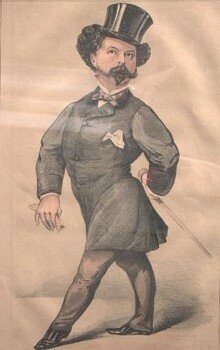Fictional police images are often more powerful than those of real police. Few real policemen become really famous and well recognised. Britain's most famous policeman is probably the children's Mr Plod from Enid Blyton's Noddy books. PC Plod patrols Toyland and his first course of action is to arrest people ~ jolly good show PC Plod!
The creation of the Thames River Police was one of the most significant police reform experiments of the time. The first regular professional police force in London, the Thames River Police was organized to curb the thefts that plagued the world's largest port. The West India Trading Company created these marine police in June 1798 and installed police reformer Patrick Colquhoun as director of a permanent staff of 80 men and an on-call staff of 1,120.
|
|
DIXON OF DOCK GREEN
British Police Televison Series
Beginning in 1955 and finally ending in 1976, Dixon Of Dock Green was the longest running police series on British television and although its homeliness would later become a benchmark to measure the "realism" of later police series, such as Z Cars and The Bill, it was an enormously popular series. Dixon should be seen as belonging to a time when police were generally held in higher esteem by the public than they have been subsequently.
|
 |
| The series was principally set in a suburban police station in the East End of London and concerned uniformed police engaged with routine tasks and low-level crime. The ordinary, everyday nature of the people and the setting was further emphasised in early episodes of the series with the old, British music-hall song--"Maybe its because I'm a Londoner" - with its sentimental evocations of a cozy community... |
 |
Mr Plod
Just then, Mr Plod walked uo. "Now then! What's going on here? he asked sternly".
Policemen in England have traditionally been know as "bobbies", however, a policeman e-mailing SterlingTimes said that he was informed during a police conference that the term must no longer be used because it is "sexually non-inclusive".
How sad!
|

Peel, Sir Robert, 2nd Baronet
born Feb. 5, 1788, Bury, Lancashire, died July 2, 1850, London
|

British prime minister (183435, 184146) and founder of the Conservative Party, who was responsible for the repeal (1846) of the Corn Laws that had restricted imports.
|
|
The History of Policing
Debate about the creation of a standing police force in England raged during the early part of the 19th century. Confronted with political objections and fears of potential abuse Robert Peel (later Sir Robert Peel) sponsored the first successful bill creating a bureaucratic police force in England.
The Metropolitan Police Act was passed in 1829 as a political compromise. The jurisdiction of the bill was limited to the metropolitan London area, excluding the City of London and provinces. All police were to be uniformed; crime and disorder were to be controlled by preventive patrols; police were to be paid regular salaries; and no stipends were permitted for successful solutions of crimes or the recovery of stolen property. But crime prevention was not the only business of the new police force: they inherited many functions of the watchmen, such as lighting lamplights, calling time, watching for fires, and providing other public services. Bobbies, named after Peel, were not immediately popular. Most citizens viewed constables as an infringement on English social and political life, and people often jeered the police.
The preventive tactics of the early metropolitan police were successful, and crime and disorder declined. Their pitched battles with (and ultimate street victory over) the Chartists in Birmingham and London proved the ability of the police to deal with major disorders and street riots.
|
Forward to Memorable Images 38
Back to Memorable Images 36
|

